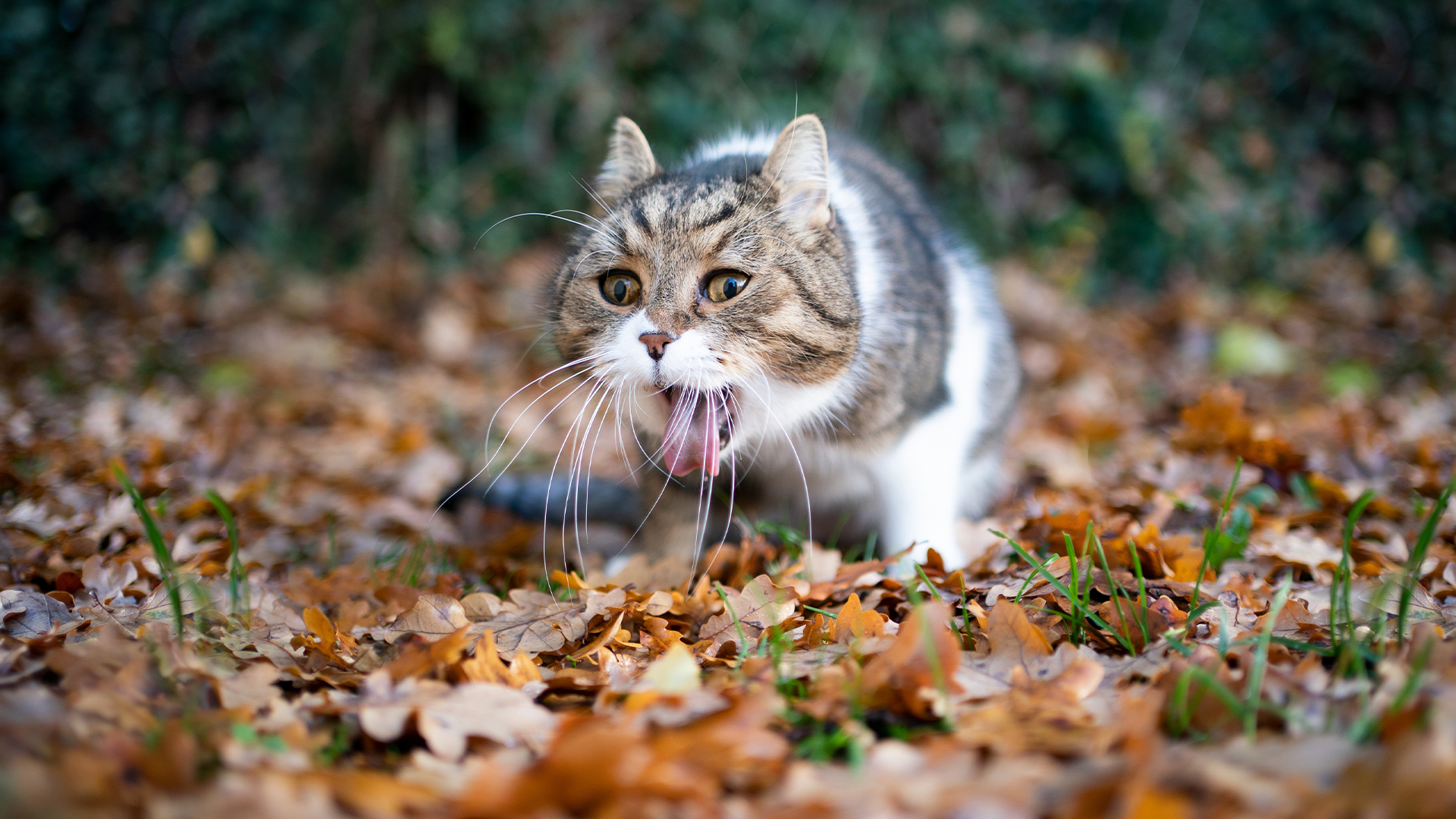Why do cats throw up so much?
What you think is cat vomit may actually be something else, like a fur ball or regurgitation.

Get the world’s most fascinating discoveries delivered straight to your inbox.
You are now subscribed
Your newsletter sign-up was successful
Want to add more newsletters?

Delivered Daily
Daily Newsletter
Sign up for the latest discoveries, groundbreaking research and fascinating breakthroughs that impact you and the wider world direct to your inbox.

Once a week
Life's Little Mysteries
Feed your curiosity with an exclusive mystery every week, solved with science and delivered direct to your inbox before it's seen anywhere else.

Once a week
How It Works
Sign up to our free science & technology newsletter for your weekly fix of fascinating articles, quick quizzes, amazing images, and more

Delivered daily
Space.com Newsletter
Breaking space news, the latest updates on rocket launches, skywatching events and more!

Once a month
Watch This Space
Sign up to our monthly entertainment newsletter to keep up with all our coverage of the latest sci-fi and space movies, tv shows, games and books.

Once a week
Night Sky This Week
Discover this week's must-see night sky events, moon phases, and stunning astrophotos. Sign up for our skywatching newsletter and explore the universe with us!
Join the club
Get full access to premium articles, exclusive features and a growing list of member rewards.
If you had a human roommate who regularly vomited on the carpet, you'd probably be concerned for their health. Yet many cat owners see their pet's puke as a fact of life.
So why do cats throw up so much? And is it normal?
"It's never really normal for a cat to vomit," said Sarah Schmid, a veterinarian who specializes in canine and feline internal medicine at the University of Tennessee.
But before you rush Mittens to the ER, you should know there's a catch: A lot of what we think is vomiting is actually something different.
"I teach veterinary students, and one of the first things I always teach them is, how do you determine that it's vomiting and not something else? Because there's a lot of look-alikes," Schmid told Live Science.
Related: Is it safe for cats to drink milk?
One of those look-alikes is hair balls. Healthy cats spend between 30% and 50% of their day grooming — and a lot of that fur ends up in their stomach. Usually, it passes through their gastrointestinal system and ends up in their poop. When it doesn't, you get a hair ball.
Get the world’s most fascinating discoveries delivered straight to your inbox.
Hair balls are passed by vomiting, so the process looks identical. The only difference is in what lands on your rug: a wad of wet fur, rather than a pool of vomit.
Still, even hair balls can be a sign of something more serious.
"In a healthy cat population, 10% of short-haired cats and 20% of long-haired cats will have a hair ball two or more times a year," Schmid said. If it's happening more than that — multiple times a month, for example — it's a good idea to take your feline to the vet, she added. It could be a result of overgrooming, a sign that your cat needs to be brushed, or even an underlying gastrointestinal (GI) issue.
Another vomit look-alike is coughing. A coughing cat looks like they're vomiting, but all that comes out is foam or mucus.
Retching is similar: A cat's stomach pumps in and out as if they're vomiting — but their stomach is empty, so nothing comes out.
Finally, there's regurgitation. While vomiting — and the other look-alikes mentioned — is an active process in which the abdomen contracts to work food up and out of the stomach, regurgitation is passive. In this scenario, food that hasn't made it to the stomach yet simply comes back out.
"A lot of times cats will do that if they eat too fast," Schmid said. "We see cats bring up things because they're like, 'Food! Excited!' and they eat it, and then all of a sudden, it comes up right away."
You can tell if food hasn't made it to the stomach by looking at the consistency: If it's still mostly solid chunks and doesn't contain yellow bile or partly digested food, it's probably been regurgitated.
But just because it's not always vomit doesn't mean fluids exiting a cat's mouth isn't cause for concern. Each of these processes looks very similar, and it takes years of training for a veterinarian to spot the difference. When in doubt, call your vet. It could be serious.
"GI disease and vomiting is probably one of the most common complaints — if you look at insurance claims for dogs and cats, it's always in the top five or 10 causes of why a pet presents at the vet," Schmid said. "So, I would say, in general, it's a common type of illness."
Even if it's not caused by a health condition, there could be something harmful in their food. Schmid said cats with chronic vomiting — regular vomiting that persists for more than three weeks — often have an allergy or intolerance to something in their diet. A veterinarian can diagnose that issue and recommend a diet that would better agree with them.
"I would say, in general, if your cat's bringing up things, you should see your vet," Schmid said.

Ashley Hamer is a contributing writer for Live Science who has written about everything from space and quantum physics to health and psychology. She's the host of the podcast Taboo Science and the former host of Curiosity Daily from Discovery. She has also written for the YouTube channels SciShow and It's Okay to Be Smart. With a master's degree in jazz saxophone from the University of North Texas, Ashley has an unconventional background that gives her science writing a unique perspective and an outsider's point of view.
 Live Science Plus
Live Science Plus











